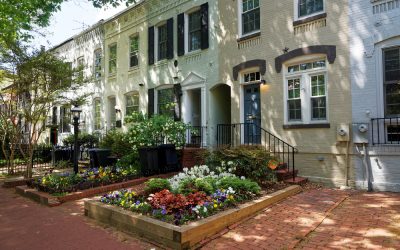
When you see “single-family homes” listed on a real estate website, you probably think that it can be defined simply as a home for a single family. However, its actual definition is a little bit more complicated than that. In fact, in order for a property to be considered a single-family home, it must meet a few requirements. Below, you will find single-family homes explained, as well as the pros and cons of living in one.
Single-Family Homes Defined
Single-family homes are legally described as structures “maintained and used as a single dwelling unit.” To be considered a “single dwelling unit,” the home must fulfill the following requirements:
- No Shared Property – single-family homes need to be located on their own patch of land, with the area around them considered “private property.”
- Private Entrance – each home should have its own private entrance and exit, with direct access to the street.
- No Shared Utilities – single-family homes can only have one set of utilities, and these cannot be shared with neighbors.
- No Shared Walls – the home should be detached from neighboring homes, with no common walls.
- Sole Owner – the owner should have an undivided interest in the property, as single-family homes are designed to be a home for only one family.
- One Kitchen – there should only be one kitchen in a single-family home. Otherwise, it will change the home’s zoning classification.
Pros of Single-Family Homes
Single-family homes are ideal for those who wish to have more privacy and space. Since you will have your own piece of land, you get the flexibility of establishing privacy through fences and/or trees. You will additionally have space between your home and your neighbor’s home, unlike townhouses, apartments, or condos.
These homes also provide you with extra space for the storage of your possessions, or for additional bedrooms or various activity rooms. If you have a large family, this is an important feature.
Cons of Single-Family Homes
One downside to a single-family home is the lack of community amenities. Townhouses, apartments, and condos usually have amenities included such as a pool, gym, or tennis court.
Moreover, as you might expect, single-family homes have a higher purchase price, which means a more expensive down payment and larger payments for taxes and insurance.
Lakeside Title Is Here to Serve You!
Lakeside Title provides title insurance and numerous title-related services, all while making sure your transactions and funds are protected and secure. Our processes streamline residential and commercial real estate transactions for lenders, realtors, buyers, and sellers. To learn more, give us a call at 410-992-1070. We look forward to the chance to serve you!
Subscription
Receive News & Insights Direct to your Inbox
Recent Posts
-
 Top 10 Frequently Asked Questions
Top 10 Frequently Asked Questions -
 Understanding the New Private Well Certification Requirements in the MAR Contract
Understanding the New Private Well Certification Requirements in the MAR Contract -
 What Owners/Landlords and Tenants Need to Know about Maryland’s mandatory Tenant Right of First Refusal (ROFR)
What Owners/Landlords and Tenants Need to Know about Maryland’s mandatory Tenant Right of First Refusal (ROFR) -
 5 Real Estate Trends to Watch in Maryland, Virginia, Pennsylvania, Delaware, and West Virginia
5 Real Estate Trends to Watch in Maryland, Virginia, Pennsylvania, Delaware, and West Virginia -
 New NPL Superfund Site Disclosure Addendum: What Maryland Homebuyers and Sellers Need to Know
New NPL Superfund Site Disclosure Addendum: What Maryland Homebuyers and Sellers Need to Know




